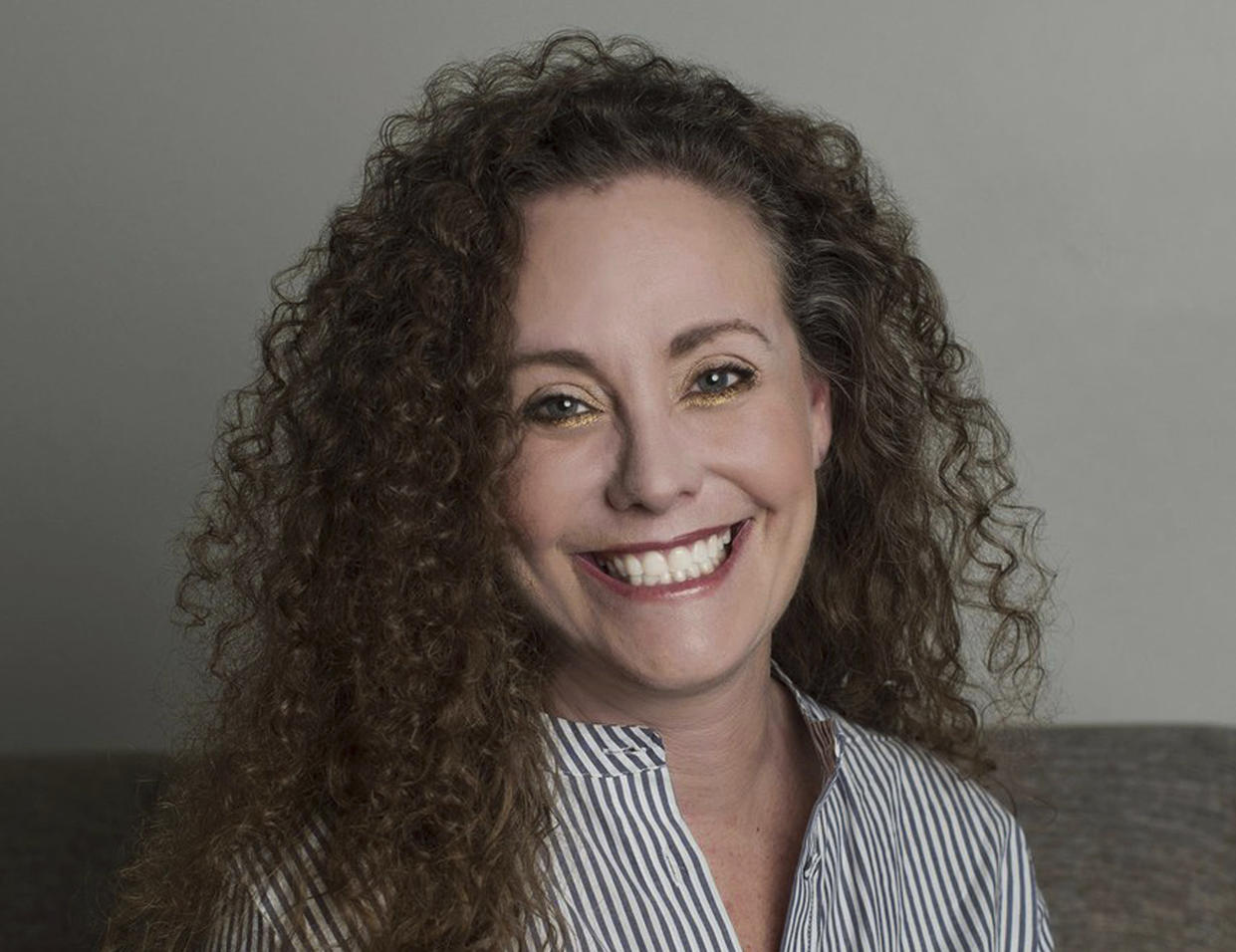Kavanaugh's third accuser, Julie Swetnick, is 'very accomplished.' Why should that matter?

The latest woman to come forward with a sexual assault allegation against Supreme Court nominee Brett Kavanaugh is Julie Swetnick, who has released a sworn affidavit, through lawyer Michael Avenatti, alleging that Kavanaugh was among a group of young men who, in high school, would spike the drinks of girls at parties before taking them into bedrooms to be “gang raped.”
That stunning accusation is just part of what was stated in the affidavit, released by Avenatti on Wednesday.
But also notable was how much time Swetnick, a 55-year-old Washington, D.C., resident and graduate of Gaithersburg High School in Maryland, spent portraying herself as credible — listing a slew of previous high-level contractor jobs with agencies including the U.S. Department of Defense and Department of Treasury; the multiple work clearances she has held with the Treasury Department, the U.S. Mint, the IRS, the State Department, the Justice Department, the Department of Homeland Security, and Customs and Border Protection (several of which are still active clearances); and the fact that she was one of “the first 100 women in the world to achieve a Microsoft Certified Systems Engineering Certification (MCSE).”

Swetnick’s detailed portrayal of herself as solid and accomplished did not go unnoticed by those in the Twitterverse, who both made a note of her successes and called out the pressure to do so as an unfortunate reality of rape culture.
Consider the extent to which Julie Swetnick has to establish her credibility in this statement. There are 14 total points and almost 10 to 11 of them are her explaining background detail to bolster her claim. https://t.co/TuugsVV0f4
— viva max vegas (@WittyEscalator) September 26, 2018
Julie Swetnick is a credible accuser. Kavanaugh is toast. https://t.co/EIRQrAz8nt
— Jen (@JenTusch) September 26, 2018
I have no idea if Julie Swetnick is telling the truth. I can say this: submitting a sworn affidavit carries with it criminal liability if she perjured herself.
Also, as a clearance holder, giving perjured statements would be a career-ender. Take that for what it's worth.
— Bradley P. Moss (@BradMossEsq) September 26, 2018
Julie Swetnick is a highly regarded person w a significant career – unimpeachable. She has identified Kavanaugh as a participant in a gang rape & other predatory behavior of a sexual nature.
If you were also subjected to the criminal acts of Kavanaugh & Judge, please speak up. pic.twitter.com/lddGSriojF
— ☇RiotWomenn☇ (@riotwomennn) September 26, 2018
Avenatti posted his affidavit. Her name is Julie Swetnick & she's got credentials. Big Time. #NoKavanaugh Absolutely NO. Credible witness to multiple gang rapes after drugging the punch & other beverages. Every weekend drunk house parties. 'Beach Weekend' was at Ocean City MD.
— Where are the kids? (@SpiritSeeker6) September 26, 2018
This is definitely the most damning of all the testimony. This woman is very accomplished and extremely respected by the intelligence and justice community. Anything short of an investigation before confirmation would be an abuse of the system. This… https://t.co/hjZjb3l53E
— EatSleep Advertising (@EatSleepAd) September 26, 2018
Her security clearances…wow and what an accomplished career. She's telling the truth, no doubt at all. She put it all on the line, signed and sworn.#BelieveWomen#BelieveSurvivors#Julieswetnick #NoKavanaughSCOTUS https://t.co/6vHrRMDxC4
— Mr. Wolf 🐺 (@TheeWolfthing) September 26, 2018
According to Laura Palumbo, communications director for the National Sexual Violence Resource Center, a victim taking great pains to portray herself as credible — and the public finding more credibility in a successful, educated woman — is a common script.
“Even when a survivor is not going through a criminal trial, many do feel the need to present their credibility in preparation for having that challenged,” Palumbo tells Yahoo Lifestyle. “It’s very common in criminal cases, such as with the Cosby trial, although [in that case] the victims were open about prior drug and alcohol use and many other challenges they’ve faced … and those aspects of their personal lives were used against them. They were blamed, shamed, and made out to be con artists, which is not uncommon.” (Donald Trump, incidentally, called out the Kavanaugh accusers and their Democratic supporters on Tuesday for running a “con game.”)
As with Swetnick, Kavanaugh’s other two accusers — Christine Blasey Ford and Deborah Ramirez — have largely been presented, in the media and by supporters on social media, as credible: Ford as a psychologist and professor, and Ramirez as a Yale graduate and board member of an organization that supports victims of domestic violence.
So why are women of professional and educational accomplishments easier for people to believe when it comes to allegations of sexual assault?
“Unfortunately, it is all really rooted in our cultural myths about rape and about women — that women falsely come forward with accusations of rape, even though that has been shown to be untrue … and that women who dress and act in a certain way are asking for sexual attention,” says Palumbo. “It’s [these myths that] women are trying to protect themselves against. And using intelligence or accomplishments is a way to deflect the idea that they could potentially have a negative motivation, and to seem more believable.”
Women who go public with accusations like those made by Swetnick feel pressure, Palumbo explains, to present the reasons for their credibility, “because we as a society don’t believe survivors when they come forward, and in fact often blame them.”
She adds, “Unfortunately, women with clean reputations and social status are more likely to be believed than those with prior drug and alcohol use or sexual histories, periods of unemployment, and an uneducated background.” That latter camp of women, Palumbo says, “often find themselves less protected than ‘the perfect victim.’”
Read more from Yahoo Lifestyle:
Follow us on Instagram, Facebook, and Twitter for nonstop inspiration delivered fresh to your feed, every day.


